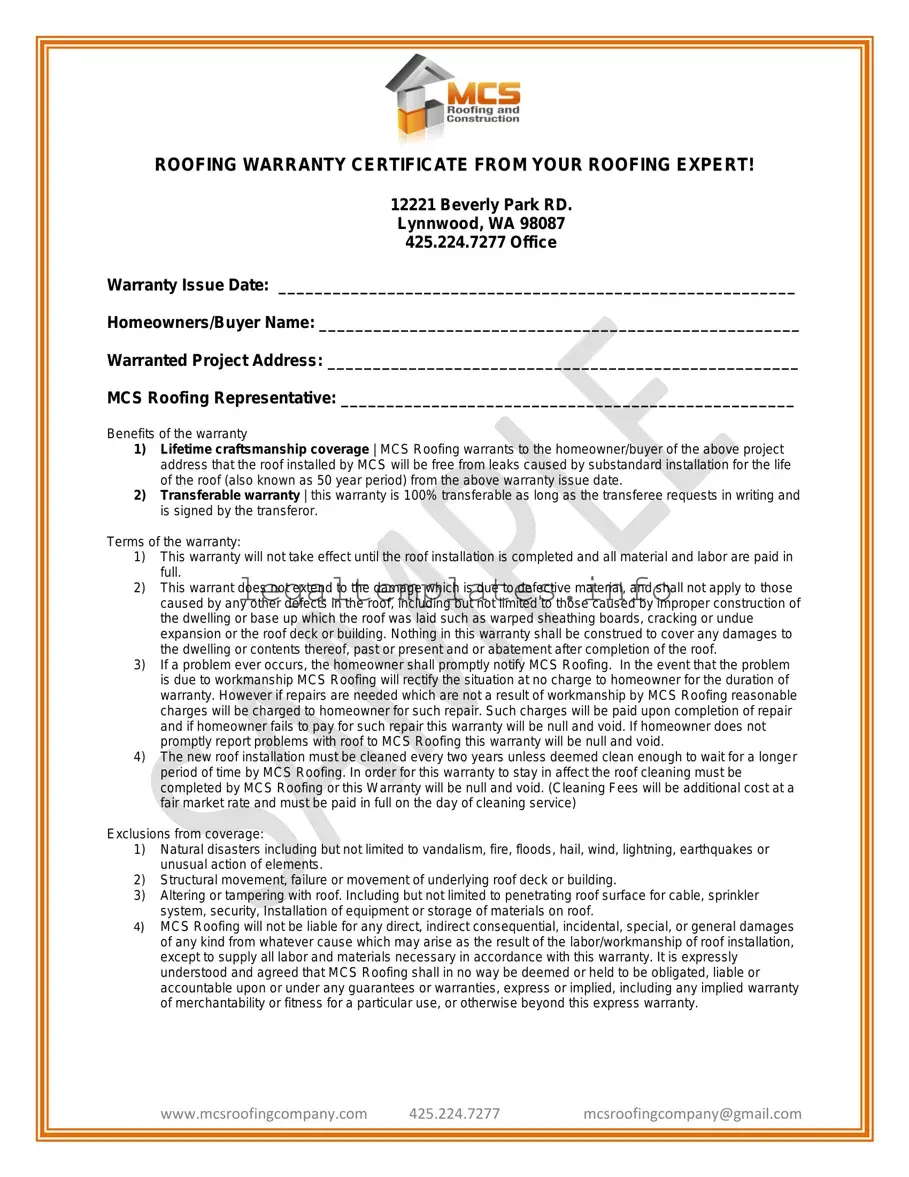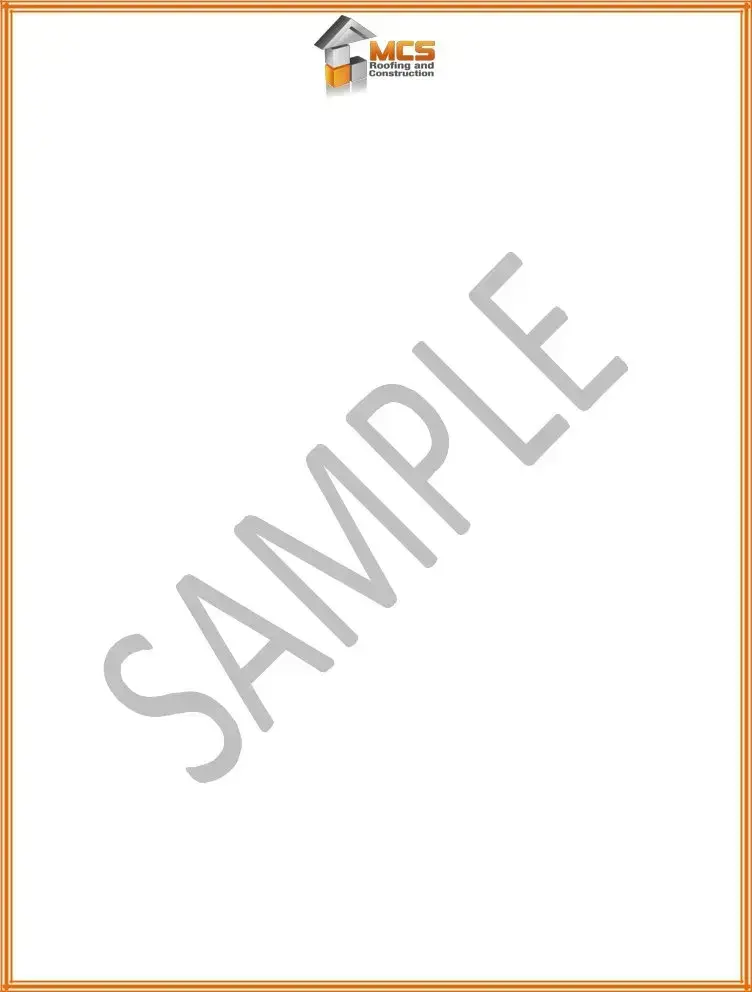ROOFING WARRANTY CERTIFICATE FROM YOUR ROOFING EXPERT!
12221 Beverly Park RD.
Lynnwood, WA 98087
425.224.7277 Office
Warranty Issue Date: _________________________________________________________
Homeowners/Buyer Name: _____________________________________________________
Warranted Project Address: ____________________________________________________
MCS Roofing Representative: __________________________________________________
Benefits of the warranty
1)Lifetime craftsmanship coverage | MCS Roofing warrants to the homeowner/buyer of the above project address that the roof installed by MCS will be free from leaks caused by substandard installation for the life of the roof (also known as 50 year period) from the above warranty issue date.
2)Transferable warranty | this warranty is 100% transferable as long as the transferee requests in writing and is signed by the transferor.
Terms of the warranty:
1)This warranty will not take effect until the roof installation is completed and all material and labor are paid in full.
2)This warrant does not extend to the damage which is due to defective material, and shall not apply to those caused by any other defects in the roof, including but not limited to those caused by improper construction of the dwelling or base up which the roof was laid such as warped sheathing boards, cracking or undue expansion or the roof deck or building. Nothing in this warranty shall be construed to cover any damages to the dwelling or contents thereof, past or present and or abatement after completion of the roof.
3)If a problem ever occurs, the homeowner shall promptly notify MCS Roofing. In the event that the problem is due to workmanship MCS Roofing will rectify the situation at no charge to homeowner for the duration of warranty. However if repairs are needed which are not a result of workmanship by MCS Roofing reasonable charges will be charged to homeowner for such repair. Such charges will be paid upon completion of repair and if homeowner fails to pay for such repair this warranty will be null and void. If homeowner does not promptly report problems with roof to MCS Roofing this warranty will be null and void.
4)The new roof installation must be cleaned every two years unless deemed clean enough to wait for a longer period of time by MCS Roofing. In order for this warranty to stay in affect the roof cleaning must be completed by MCS Roofing or this Warranty will be null and void. (Cleaning Fees will be additional cost at a fair market rate and must be paid in full on the day of cleaning service)
Exclusions from coverage:
1)Natural disasters including but not limited to vandalism, fire, floods, hail, wind, lightning, earthquakes or unusual action of elements.
2)Structural movement, failure or movement of underlying roof deck or building.
3)Altering or tampering with roof. Including but not limited to penetrating roof surface for cable, sprinkler system, security, Installation of equipment or storage of materials on roof.
4)MCS Roofing will not be liable for any direct, indirect consequential, incidental, special, or general damages of any kind from whatever cause which may arise as the result of the labor/workmanship of roof installation, except to supply all labor and materials necessary in accordance with this warranty. It is expressly understood and agreed that MCS Roofing shall in no way be deemed or held to be obligated, liable or accountable upon or under any guarantees or warranties, express or implied, including any implied warranty of merchantability or fitness for a particular use, or otherwise beyond this express warranty.
www.mcsroofingcompany.com |
425.224.7277 |
mcsroofingcompany@gmail.com |


